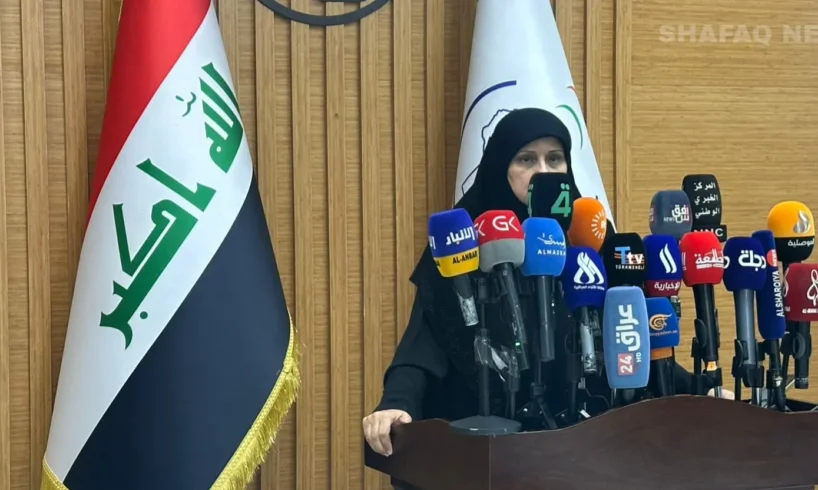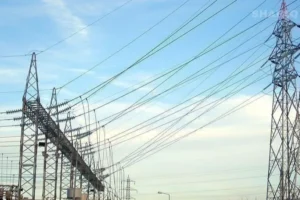
Shafaq News – Baghdad
Iraq’s plan to launch a state-backed mobile
operator with 5G capability has been suspended after a judge ordered the
Communications and Media Commission (CMC) to pause the signing of the operating
license, Minister Hiyam al-Yasiri revealed on Monday.
Speaking to reporters in Baghdad, the
minister explained that the halt followed a lawmaker’s letter, emphasizing that
no contract had been concluded with Vodafone, which is involved solely as a
technical partner.
Al-Yasiri noted that the signing between the
National Mobile Telecommunications Company (NMTC) and the CMC had been
scheduled for October 8, underlining that the suspension targeted the Iraqi
entity, not Vodafone.
“No agreement has been signed with Vodafone;
only a memorandum of understanding exists,” she clarified.
The first test call had been planned for
November 2025 before the judicial intervention.
According to al-Yasiri, the order was issued
by the Supreme Judicial Council, not an individual judge. She reaffirmed the
ministry’s respect for the judiciary and her team is preparing a legal
response. The minister also pointed out that she had personally faced extortion
attempts related to ministry contracts but chose to pursue the lawful course
despite political and personal pressure.
The Iraqi government approved the creation of
NMTC in March 2025 to operate a nationwide 5G network under a three-year
exclusive authorization. Ownership is entirely public—divided among the State
Employees’ Pension Fund, the Trade Bank of Iraq (TBI), and Al-Salam General
Company of the Communications Ministry—with plans to offer shares for public
subscription at a later stage.
Al-Yasiri recalled that the ministry had been
seeking to establish a national operator since 2010 but had been repeatedly
obstructed. “We do not want to repeat the failure of 15 years ago,” she said,
pointing out that Parliament had voted for the inclusion of an international
partner and that all measures were taken according to Cabinet decisions.
Under a “Partner Market” framework, Vodafone
was chosen as the technical and commercial collaborator, responsible for brand
use, systems, and training—but without equity in the Iraqi venture, according
to government briefings. In August, following political criticism, the ministry
reiterated that no investment contract with Vodafone existed and that
procedures were still in progress.
On August 31, Prime Minister Mohammed Shia
al-Sudani formally inaugurated the NMTC, describing 5G as a “qualitative step”
toward improving connectivity and diversifying non-oil revenue. The new
operator was expected to compete with Iraq’s three existing providers—Zain
Iraq, Asiacell, and Korek—whose dominance dates back two decades.
What The Partnership Entails
Officials say Vodafone’s role includes
network planning, commercial systems, and staff training, with full management
to be transferred to Iraqi teams after a transitional period. The arrangement
also permits the use of Vodafone’s brand for a set duration, while regulatory
licensing remains under the CMC.
The Cabinet had authorized the CMC to issue a
three-year exclusive national 5G license to Al-Salam, paving the way for the
public company’s establishment.
The minister reaffirmed that the cooperation
was purely technical, aimed at training Iraqi cadres and transferring
expertise, with all capital and management under Iraqi control.
Dispute And Allegations
Al-Yasiri stated that the court’s suspension
stemmed from a lawmaker’s letter containing “falsehoods,” without identifying
the MP. She said her office holds documents proving that certain parties tried
to obstruct the licensing process. “Who benefits from the absence of
competition?” she asked, suggesting that existing operators were behind the
efforts to block the project.
Meanwhile, posts by Iraqi journalist Qusay
Shafiq shared alleged “leaked documents” claiming major financial commitments
in the Vodafone arrangement—claims that Shafaq News has not independently
verified.
According to these materials, the contract
would have required Iraq to pay €30.3 million annually in management fees, €2.5
million every six months for travel and protection expenses, €10 million per
year (or 3 percent of revenues) for brand use, and €13 million in platform and
service fees.
Shafiqaccused the ministry of enabling
“financial waste and monopoly over the telecom sector without genuine service
or regulatory guarantees.” Critics online questioned why a “national” company
would operate under a foreign brand, with Shafiq writing: “You call it the
National Mobile Company, but it carries a foreign name and drains public funds
— how is that national?”
The ministry has consistently maintained that
no binding contract with Vodafone exists and that all procedures comply with
Cabinet decisions and the law.
Economic And Consumer Stakes
The government presents the project as a
means to retain telecom profits within the public sector, strengthen the
pension system, and enhance competition that could lower costs and expand
coverage—especially through 5G-based broadband for homes and businesses.
Officials also argue that local oversight
will improve data sovereignty and security.
Al-Yasiri emphasized that telecommunications
could become “Iraq’s next oil” in terms of revenue, calling it a strategic
resource capable of boosting the national economy and creating jobs for youth.
Context In Iraq’s Telecom Sector
Iraq’s mobile market has long been dominated
by Zain Iraq, Asiacell, and Korek. Previous attempts to reform licensing and
enhance competition have often been contentious; in 2020, a Baghdad court
annulled a government decision extending the operators’ licenses. The new
national operator enters this environment as a state-led venture blending
public ownership with international expertise.
What Happens Next
As of Monday, the ministry said it is
preparing its legal reply while insisting the project will resume once judicial
issues are resolved. No new date has been announced for the 5G license signing
between the CMC and NMTC. The ministry confirmed it will maintain coordination
with the Supreme Judicial Council and regulators, reaffirming its goal to
establish a transparent, competitive, and wholly Iraqi-run telecommunications
sector.
Written and edited by Shafaq News staff.





